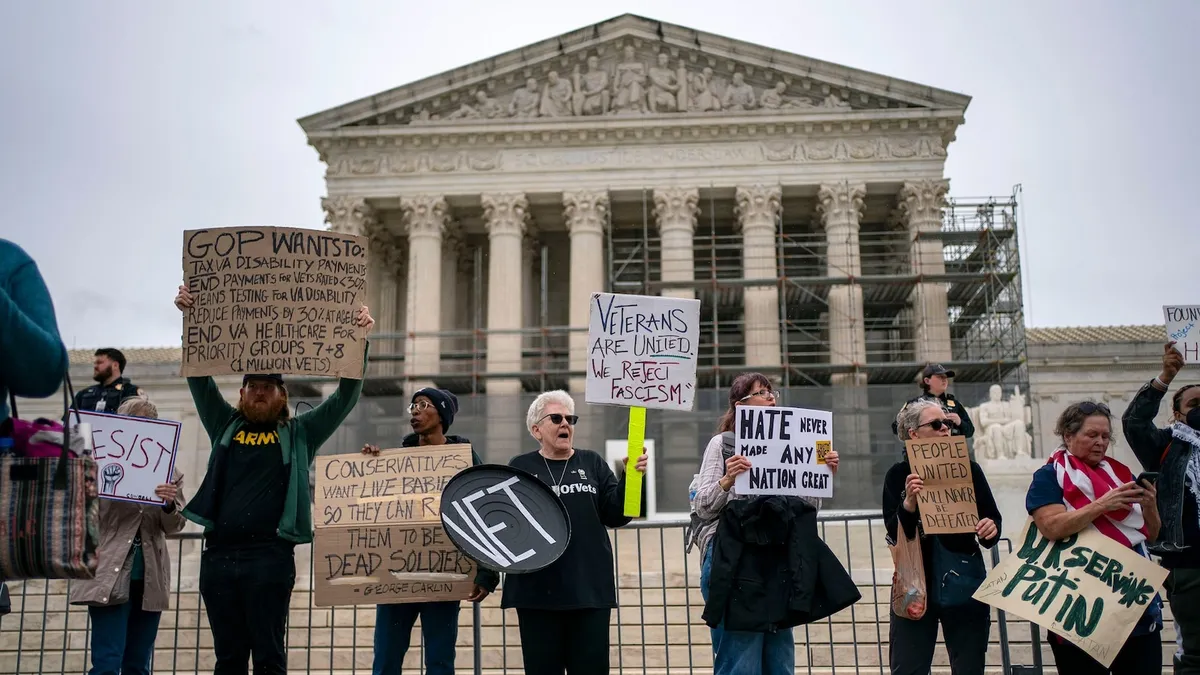
Since Donald Trump took office, his administration has encountered an unprecedented wave of legal challenges, averaging more than two lawsuits per day. In just over 100 days, at least 220 lawsuits have emerged across various courts in the United States, disputing nearly every aspect of Trump's extensive policy agenda. This relentless pace of litigation has been fueled by more than two dozen executive orders, the dismissal of twenty high-ranking officials, and numerous other executive actions.
While the Trump administration has seen some legal victories, federal judges have blocked significant portions of its agenda. Key elements under judicial scrutiny include aspects of the president's immigration policy, military directives, and attempts to dismantle diversity and equity initiatives. According to Justin Levitt, a law professor at Loyola Marymount University, the administration's approach resembles a "shock-and-awe bombing campaign," indicating that many of their actions could have been lawful if not for their reckless disregard for existing legal frameworks.
The influx of lawsuits has been staggering: 20 lawsuits were filed in January, around 70 in both February and March, and approximately 50 through April. A significant portion—around 60 cases—has concentrated on Trump's immigration policy. Courts have intervened to block attempts to eliminate birthright citizenship, deny funding to sanctuary cities, and deport noncitizens without due process.
Judges have increasingly criticized Trump's immigration policies, questioning the rationale behind unilateral decisions. U.S. District Judge John Coughenour, a Reagan appointee, stated that to the president, the rule of law appears to be an obstacle in achieving policy goals. "In these moments, the rule of law becomes especially vulnerable," he remarked, emphasizing the critical role judges play in protecting constitutional principles.
Moreover, the courts have blocked Trump's moves to ban transgender individuals from military service, restrict gender-affirming healthcare, and enforce proof of citizenship for voter registration. Although some actions have proceeded, such as the mass firing of government employees and the dismantling of the United States Agency for International Development, many of these actions remain under judicial review.
The ongoing conflict between the Trump administration and the judiciary has raised concerns about potential damage to the separation of powers enshrined in the Constitution. Federal Judge Harvie Wilkinson III warned that the escalating tensions risk an irreparable grinding of the branches against one another, ultimately undermining the integrity of governance.
In the first 100 days of Trump's presidency, lawyers have alleged that his administration violated court orders at least six times. While no official contempt charges have been filed, federal judges have expressed serious concerns regarding the government's "bad faith" actions during ongoing lawsuits. For example, U.S. District Judge James Boasberg ruled that the administration likely violated his order regarding the deportation of alleged migrant gang members.
The Trump administration has defended its actions, arguing that the judge's authority was exceeded since the flights in question had already left U.S. airspace. However, Judge Boasberg invoked the words of former Chief Justice John Marshall, asserting that the Constitution does not tolerate willful disobedience, especially from officials bound by an oath to uphold it.
The Trump administration continues to face legal challenges regarding its immigration policies, including the case of Kilmar Abrego Garcia, a Salvadoran native mistakenly deported despite existing protections. The administration's reluctance to comply with court orders has drawn scrutiny, with judges condemning efforts to deport noncitizens without due process.
Despite Trump's promises to protect free speech, his administration has faced multiple lawsuits alleging violations of the First Amendment. Law firms targeted for past legal work against the administration argue that their rights were infringed upon, leading to temporary judicial blocks against the administration's actions. Harvard University also cited the First Amendment in a lawsuit challenging a funding freeze imposed by Trump, arguing that such actions threaten academic freedom.
In an ABC News/Washington Post/Ipsos poll, a significant majority of Americans expressed concerns over the Trump administration's respect for the rule of law, with many believing it is attempting to evade compliance with federal court orders. As the Trump presidency navigates this complex legal landscape, the implications for civil liberties and constitutional principles remain at stake.
The legal challenges faced by the Trump administration in its first 100 days highlight the ongoing tension between executive power and judicial oversight. As lawsuits continue to unfold, the outcomes may have lasting repercussions for the administration's policies and the broader landscape of governance in the United States.